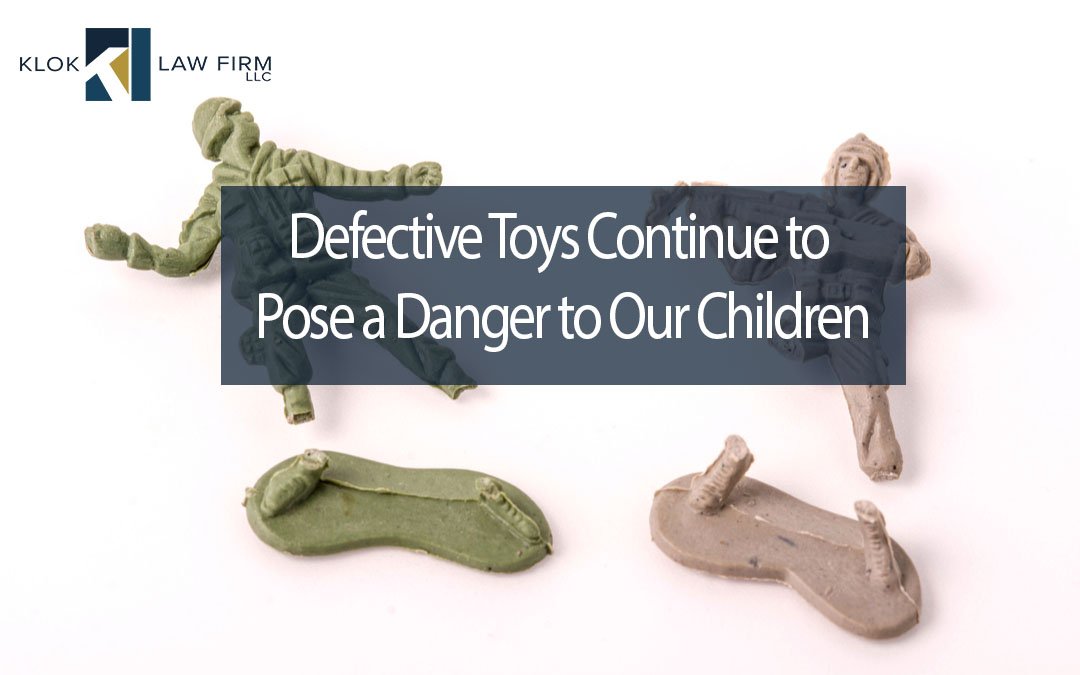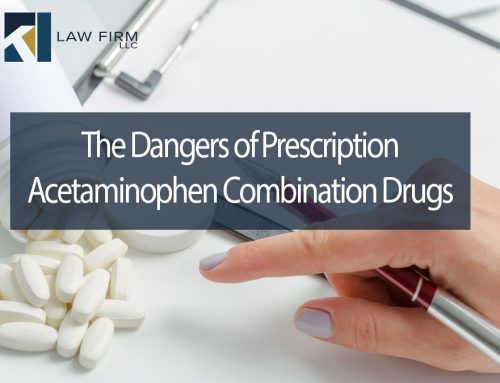It is reported that over 200,000 children are hurt by toys in the United States each year. While some toys are dangerous due to their design, sometimes the danger results from the toy’s manufacture, or simply because the toy does not contain the adequate warning label. Modern products liability law distinguishes between three types of product liability claims: (1) manufacturing defect (the product became dangerous during the manufacturing process, usually due to poor workmanship or use of dangerous materials); (2) design defect (the product is dangerous in and of itself due to its design); and (3) a failure to warn (the product contains inherent dangers that could have been mitigated had it contained an adequate warning to users).
Chinese Toys and the Dangers of Lead Paint
A recurring products liability issue involves the importing of defectively manufactured toy products from Chinese toy manufacturers. Because Chinese toy manufacturers are not subject to the extensive regulations we have here in the United States regarding the design, manufacture and distribution of toys and other consumer products, there have reportedly been many injuries and deaths associated with these imported products, especially in children.
In 2006, after a four-year-old died from swallowing a lead-tainted charm bracelet manufactured in China, an autopsy revealed that the bracelet was 99% lead – a whopping 98.4% over the 0.06% lead content limit prescribed by the Consumer Product Safety Commission (“CPSC”) in the United States. Reebok immediately recalled hundreds of thousands of these lead-tainted charm bracelets following this discovery. Similarly in August of 2007, well-known toy company Mattel recalled 1.5 million Fisher-Price toys that were covered in high-content lead paint from suppliers in China. The toxic lead paint was used on popular children’s toys such as Elmo, Big Bird, Dora and Diego figures.
Recent Litigation Involving Imported Toys
In response to repeated reports and recalls associated with injuries and death to children, the U.S. Department of Justice (“DOJ”), CPSC, and U.S. Customs and Border Protection have worked together in recent years to identify and crack down upon those who allow dangerous products in violation of U.S. regulations to enter and be distributed within our borders. In March 2014, the DOJ filed suit against four California toy companies for importing products that violate U.S. regulations (i.e. the Federal Hazardous Substances Act and the Consumer Product Safety Act). The named Defendant companies include Toy Distribution, Inc., S&J Merchandise, Inc., BLJ Apparel, Inc. and All Season Sales, Inc. Several owners and managers of the companies are also being sued individually.
The Defendants are accused of importing and distributing children’s products such as dolls, toy musical instruments, and toy cars that contain high levels of lead, prohibited chemicals and small parts. According to the formal Complaint filed by the DOJ:
- Since 2008, 61/66 product samples taken from Toy Distribution Inc.’s imported shipments were in violation of CPSC regulations;
- Since 2010, 17/18 product samples taken from S&J Merchandise, Inc.’s import shipments were in violation;
- Since 2012, 4/4 product samples taken from BLJ Apparel, Inc.’s import shipments were in violation; and
- Since 2013, 12/12 product samples taken from All Season Sales, Inc. were in violation.
These allegations are frightening and disturbing, especially because they refer to products that are being marketed and sold to children.
U.S. Companies have a duty to make sure that imported toys and other products meet our federal product safety standards before distribution to the general public, who rely on those standards. We have become wary of products that say “Made in China” or elsewhere after the repeated horror stories regarding the manufacturing procedures, working conditions, and hazardous materials used in China and other countries whose products have historically been imported by the United States. The bottom line is that U.S. companies that continue to outsource labor and then sell those products here will be held responsible for any injuries that result from this business model.
Contact Our Personal Injury Lawyers Today
If you or a loved one has suffered injuries due to a defective toy or other consumer product, contact our personal injury attorneys at the Klok Law Firm, LLC today for a free initial consultation. We are here to advise you on your right to recovery.


